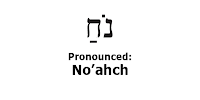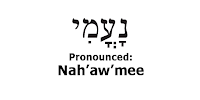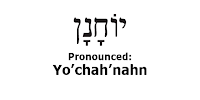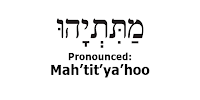Jacob

Listen to Ya'ah'kov pronounced The root letters of the name Jacob (Ya'akov) are ayin , kuf and vet . According to Genesis 25:26, Jacob was given his name, because he was born immediately after his brother Esau, and “his hand had hold on Esau’s heel.” (Heel in Hebrew is ah'kev .) The ayin-kuf-vet root of the name Ya'akov is also the root of the word akov , crooked or insidious, and aikev , struggling. From Esau’s point of view, Jacob was “crooked.” After discovering that Jacob had been blessed by Isaac in his stead, Esau called out: “Is not he rightly named Jacob? For he has supplanted me these two times: he took away my birthright; and, behold, now he has taken away my blessing” (Genesis 27:36). Esau assumed no personal responsibility for the transfer of the birthright due to his decision to sell the birthright for a bowl of lentils and for stating that birthright has no purpose for him. Upon reading the Biblical narrative, one may conclude that Esau sold his birth...
















